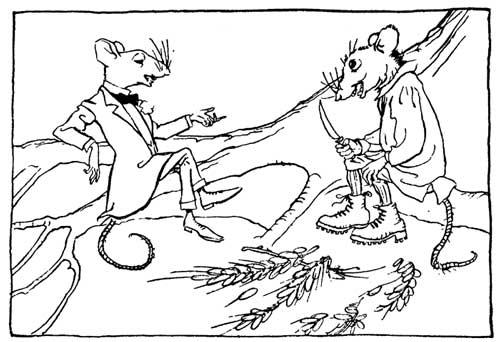Just before Easter weekend, I paid a visit to my sister, who lives in Florida. After spending almost 20 minutes driving five miles on Jacksonville’s I-295, I arrived at her condominium, gave her a hug, mentioned the congested traffic, and said, “I’m definitely a country mouse.”
Lesson 1: Vive La Différence!
At first glance, it’s easy to extend this homogeneity to the people who make their homes here. Nearly all are retirees. The visitor will find no mothers pushing baby strollers, no children riding bikes, no teens throwing a football or hanging out in the side yards. The pedestrians, of which there are a good number, are all gray-headed and out for a stroll for their health. On my first day in this enclave of the old, I lumped the residents all together, considering them as a group rather than as individuals unique unto themselves.This is only natural. After all, our culture encourages labeling people by their politics, their religious beliefs, and even the color of their skin. If we learn that someone is a supporter of Joe Biden or Donald Trump, we can easily make a dozen assumptions about them. Make them a part of a herd, and we strip away their individuality.
And that’s always a mistake, for each of these people, just like all human beings, have a history, a story unique unto themselves.
A walking tour of the neighborhood with my sister brought that neglected truth home to me. Her next door neighbor, she told me, had worked as a chemist in Chicago. Another neighbor, a recluse, spends a good part of his day with a bottle. Yet another, a pleasant octogenarian, still grieves for the wife who died several years ago. With each detail she added, the individual stepped away from the herd and became a personality.
Lesson 2: The Light We Bring to the World
In fact, it is precisely because of these differences in talent and outlook that each of us acts, often unwittingly, as an educator for those around us.And often we pass these gifts along from generation to generation. During my visit, my sister and I got together with her daughter, her daughter’s husband, and their 16-month old son at a Greek restaurant. Here in the flesh, I noticed, was evidence of that heritage and education we hand off from one to another. My sister had learned tenderness and love from our mother, she had raised her daughter with these principles in force, and now her daughter, my niece and the mother of this child so new to this world, was giving him the same gifts.
Lesson 3: Mirth
Now, there’s an old-fashioned word rarely heard these days.For most of us, laughter is a common commodity. It may originate with some bit of foolishness out of Washington D.C., some joke told by a comedian on Netflix, or a quip from a friend. In many of these cases, we are poking fun at the foibles of others or mocking ourselves for some goof-up.
But to spend an evening of mirth, as I did in Florida, is to laugh with others, not at them.
The six adults who had gathered for supper in a Greek restaurant—my sister and I, her two grown children and their spouses—began that visit entertained by the little boy. He blew kisses, clapped, and flirted with our server and a woman at nearby table. This opening act led the rest of us, his audience, into the land of mirth, that place where laughter doesn’t appear as a cynical chuckle or a derisive snort, but comes from the belly, full-throttled and booming with pure joy.
Three for the Road
The necessities for survival are food, drink, clothing, and shelter. Beyond these basics are the less tangible necessities that allow us to thrive as human beings, like love, gratitude, hope, passion, and resilience.A country and its culture also require necessities if they are to grow and flourish. My trip to Florida reminded me that the lightning and thunder of America’s political storms may sometimes hide some of these vital elements. To understand that we are individual souls, that we make an impact on others through who and what we are, what we say and how we behave, and to find the joy and pleasure in merriment that can ease the hardships of life, if only for an evening, were three lessons this country mouse packed up along with his books and clothing when he was ready to return home.
In more ways than one, the Sunshine State had lived up to its name.








